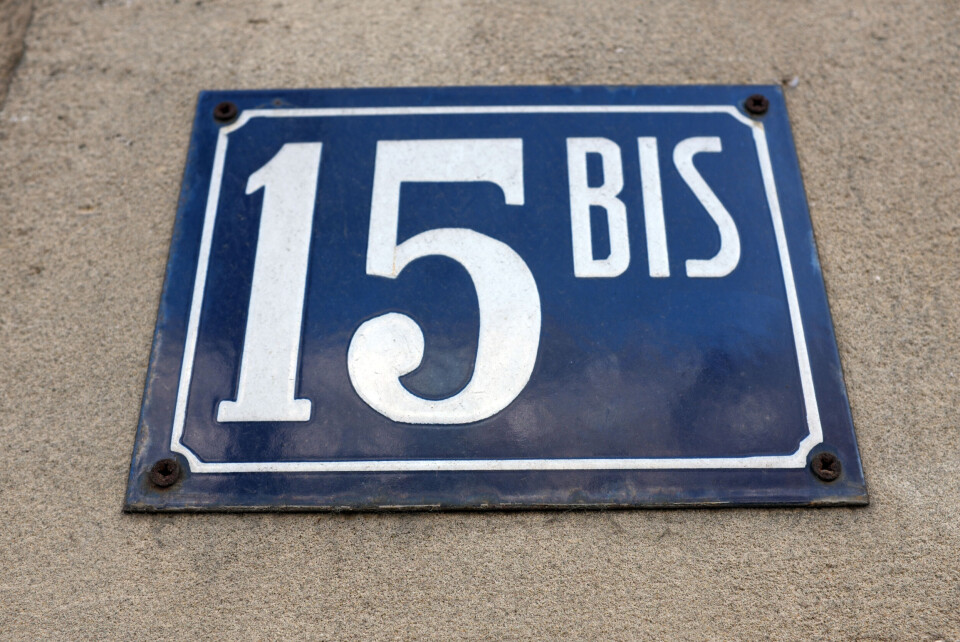-
Can non-citizens in France be foster parents?
Famille d'accueil are paid and considered employees
-
How much is second home insurance in France?
There is no legal obligation to insure a second home if it is a fully independent property
-
Can I get a UK S1 form as pensioner in France?
Anyone in the country who claims a UK state pension is typically eligible to receive an S1 form
Why do some French house numbers have bis or ter after them?
The terms are of Latin origin

Reader question: We are looking to buy a home in France and the address is 15bis. What does this mean?
The majority of French streets are numbered just like those in the UK or US.
The ‘beginning’ of a street is usually the part of the road closest to the town’s centre, although this is not always the case if the mairie chooses otherwise. Similarly, by convention, there are odd numbers on one side and even on the other, though this also is not obligatory.
Initially, when the road is being constructed, each plot of land is given a number by the mairie and this is added to the land records (cadastre) at the local tax services. This later becomes the house number you see displayed.
If the street is extended, new, higher, numbers can be added, but in cases where lots are further divided – or new buildings are built on that lot – it is impossible to renumber the entire street.
In its place, words such as bis and ter are added instead to indicate the building is on the original parcel of land for that number but is now a separate plot.
As a matter of interest, in small communes of under 2000 people, there was previously no obligation to number houses, but according to a recent legal change that is no longer the case.
What dobisandtermean?
In the UK, this change is commonly marked with letters. For example, 47a, 47b or 47c may appear on house addresses when the original ‘47’ lot has been divided up.
In France, it is most common to use ‘multiplicative adverbs’ instead of single letters, with the most common of these being bis (multiplicative adverb of two, meaning ‘twice’), ter (of three), quarter (of four) etc.
A multiplicative adverb shows a repetition of the original number – 47 bis and 47 ter mean the second and third buildings in the lot numbered ‘47’. Usually ‘ter’ will be further down the street than ‘bis’.
They are of Latin origin, which is evident when you reach the higher multiplicative adverbs – octovicies for 28, for example.
Where else are they used?
Outside of housing, you can also see these words used in a legal context – where a law written in English might say Article 14a and 14b, a French one would say Article 14 bis et 14 ter.
Although bis, ter, and quater are the most common multiplicative adverbs seen on French streets, they can reach much higher numbers, especially when it comes to written contracts and legal codes.
Read also: Why were the French so suspicious of street numbering?
A list of multiplicative adjectives on one legal website states the highest adverb of this kind ever used was novosexagies, the multiplicative adverb for 69, in a 2019 EU document about finance laws.
Article 325 novosexagies of the law simply means the 69th clause of Article 325 of the law.
Another common usage of bis, which if you are Anglophone you might use almost every day, is the word biscuit, as biscuit literally means bis cuit – baked twice.
‘Bis’ is also used, for example, in music to mean ‘encore!’.
Related articles
New GPS address system in place across France after a decade roll-out
What to do now that my street name has been changed by the mairie?
























